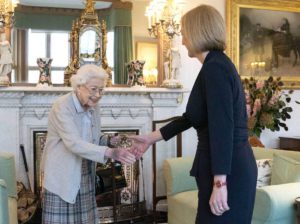Since the beginning of the war in Ukraine, the relationship between Turkey and Russia has deepened. This rapprochement between the two nations serves as cause for concern for Western nations. In fact, in June, United States’ Deputy Secretary of the Treasury, Adewale Adeyemo, met with Turkish officials. According to the US Treasury, the motive behind this meeting was to raise “concerns that Russian entities and individuals are attempting to use [Turkey] to evade sanctions put in place by the United States and 30 countries.” This article will look at ties between Moscow and Ankara and analyze the implications these ties have on the international community.
First of all, before analyzing the current situation it is key to understand that for centuries these two nations have had what can be described as a “hate-love” relationship. There have always been underlying tensions which have sometimes escalated to war. The tensions can be explained by the countries’ proximity and mutual desire to expand their territories.
These tensions lasted during the entirety of the Ottoman Empire and continued even after its fall. After the Second World War, Turkey became closer to the Western bloc as it saw the USSR as a direct threat to its security and sovereignty. Consequently, Turkey joined the North Atlantic Treaty Organization and grew closer to the Western Bloc. In 1951, the construction of the Incirlik Military Air Base began in Turkey. After an agreement was signed, the United States was authorized to use the air base jointly. The cooperation between both countries did not stop there. Between 1958 and 1959, Turkey received fifteen Jupiter missiles from the United States, which would retain ownership of the missiles. Turkey’s acceptance of US missiles only facilitated further escalation of tensions between Russia and Turkey. However, the two countries did not completely alienate themselves from one another because they were economically reliant on each other.
A more recent example to explain this idea is the Syrian conflict, in which Turkey and Russia have opposing stances. On one hand, the Turks support different Syrian insurgent groups. On the other hand, the Russians support the forces which are loyal to President Bashar al-Assad. The conflict peaked in 2015 when Turkish fighter jets shot a Russian fighter jet out of the sky. Despite the gravity of this event, it did not launch the war nor did it gravely deteriorate Turkey’s relations with Russia in the long term. This can be explained by the Russian-Turkish energy interdependence and the important trade between these countries. It is even possible to say that since the event in 2015, the countries’ economic relationship has flourished. In 2018, Russia’s natural gas represented forty-seven percent of Turkey’s total gas imports, making Russia its number one importer.
These two nations have always needed each other and have acted accordingly despite the tensions. This can push one to wonder: what is different now? Also, why are Western countries wary of this deepening alliance?
As previously mentioned, both countries trade a lot with each other, but their political discord has always kept any possibility for a real and durable alliance at bay. Nonetheless, this is something that could change in the upcoming years. Since the beginning of the Ukrainian war, the Turkish government has refused to apply Western sanctions against Russia. In fact, it has been working with sanctioned Russian banks. During transactions between both countries, payments from Russian credit cards have been accepted. Moreover, Russian gas has continued to flow through the Turkish Stream pipeline.
How Does This Alliance Benefit Both Putin and Erdoǧan?
Furthermore, Turkey served as a sort of mediator to bring together Ukrainian and Russian foreign ministers. In July, foreign ministers met in Istanbul to sign a deal which would enable the transportation of Ukrainian grains through the Black Sea. During the meeting it was agreed that the boats transporting the grains will be inspected by Turkish authorities before being able to enter the Turkish Strait. Additionally, a Joint Coordination Center will be established in Istanbul.
Looking at Erdoğan, he has been using these diplomatic wins (the transportation of Ukrainian grains) to gain support for next year’s upcoming presidential election. This support is needed since his approval ratings have been decreasing alongside the declining Turkish economy. Inflation has reached a record high of seventy-nine percent and the lira has reached a record low. The opposition is blaming his economic decision making for the state of the economy. Unlike other countries, Erdoğan chose to decrease the interest rate despite high inflation. They also blame him for putting an end to the Turkish Central Bank’s independence from the government.
Next year might well be Erdoğan’s biggest electoral challenge and he is hoping that by signing this deal he will gain more electoral support.
On the other hand, Putin is in need of an ally with the Ukrainian war lasting longer than anticipated and the sanctions from the West causing pressure. He is hoping to increase Russia’s economic partnership with Turkey. At the beginning of August, both leaders met in Sochi, and according to the Turkish president, they decided on economic cooperation that could reach a total of $100 billion.
What Does This Mean for Western Countries?
While a burgeoning alliance between both nations is worrisome for the West, it does not only have disadvantages. For one, Turkey has helped with the delivery of Ukrainian grains. Moreover, it is important to note that the relationship between Turkey and Russia is still ultimately a “hate-love” relationship. Both nations still have opposing stances on certain issues and are still fighting proxy wars in Libya and Syria. Overall, there has been a deepening in the alliance, however, there is no telling how long this will last.
Featured Image by: Getty Images







